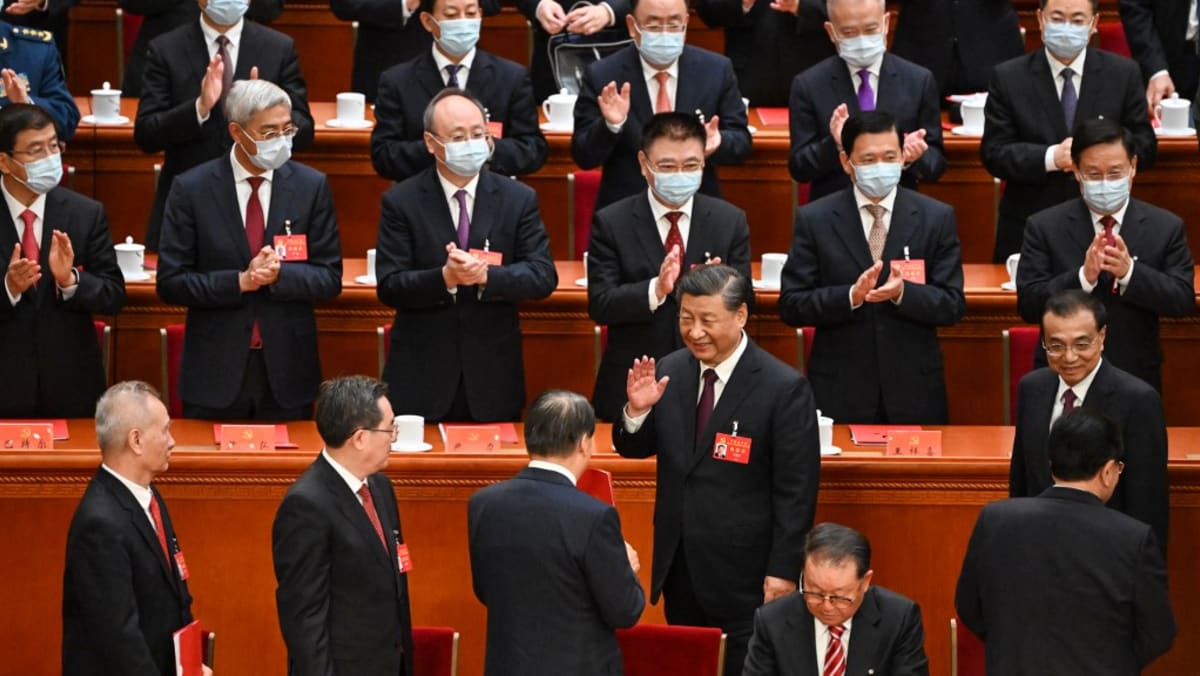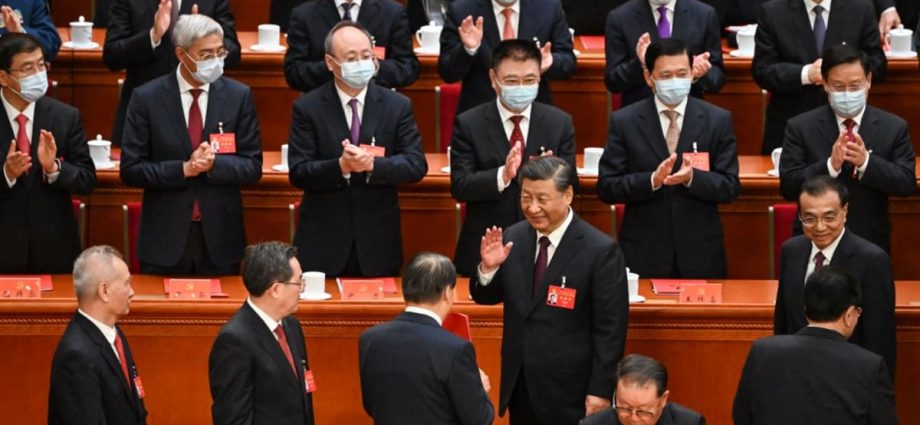
Chinese President Xi Jinping secured a historic third term as China’s leader on Sunday (Oct 23), shortly after the first meeting of the new Central Committee, which was elected on Saturday.
Xi walked at the head of the group at the presentation event for the Communist Party’s seven-member Standing Committee, a position reserved for the party’s general secretary.
The anointment of Xi came after a week-long congress which saw a sweeping reshuffle of the Central Committee, where a number of top officials – including Premier Li Keqiang – stepped down, as well as the endorsement of Xi’s “core position” among the country’s leadership.
CNA looks at the key highlights:
A HISTORIC THIRD TERM
Xi’s reappointment as general secretary of the Chinese Communist Party for another five-year term effectively cements his position as the nation’s most powerful leader since Mao Zedong, as it tilts the country decisively back towards one-man rule after decades of power-sharing among its elite.
Former leader Deng Xiaoping had written the presidential two-term limit into the constitution in 1982 to institutionalise succession but Xi abolished that limit in 2018.
The 69-year-old is now all but certain to sail through to a third term as China’s president, due to be formally announced during the government’s annual legislative sessions in March.
Since becoming the country’s leader a decade ago, Xi has achieved a concentration of power like no modern Chinese ruler other than Mao.
He proposed the Belt and Road Initiative, pushed for China’s rapid expansion in the South China Sea and hosted the 2022 Winter Olympics.
Xi also oversaw China’s rise as the world’s second-biggest economy, a huge military expansion and a far more aggressive global posture that has drawn strong opposition from the United States.
LEADERSHIP SHUFFLE
The Politburo Standing Committee of seven people, which included re-elected general secretary Xi, was revealed on Sunday.
The Standing Committee, which saw four new faces, represents the apex of political power in China.
The committee members were elected by the newly-minted Central Committee of around 200 senior party officials.
Former Shanghai party chief Li Qiang, a confidante of Xi’s, was promoted to number two in the party hierarchy, making him likely to be named premier at the government’s annual legislative sessions next March.
It would be an unusual appointment since Li, unlike most past premiers, does not have experience as a vice premier managing central government portfolios.
The 63-year-old rising star’s prospects were seemingly in doubt after he bungled a harsh two-month lockdown of Shanghai earlier this year that saw residents left with a lack of access to food and medical care.

